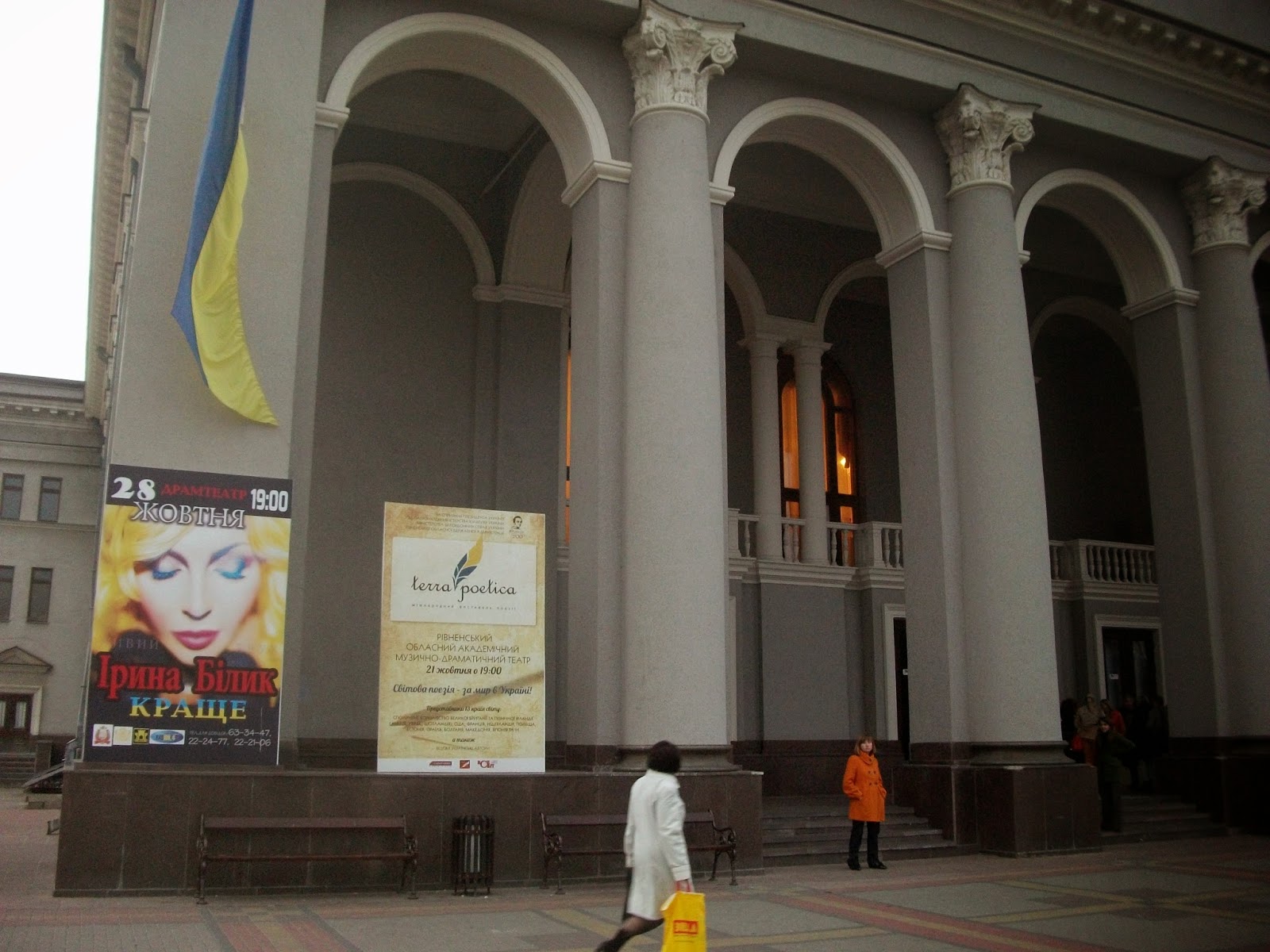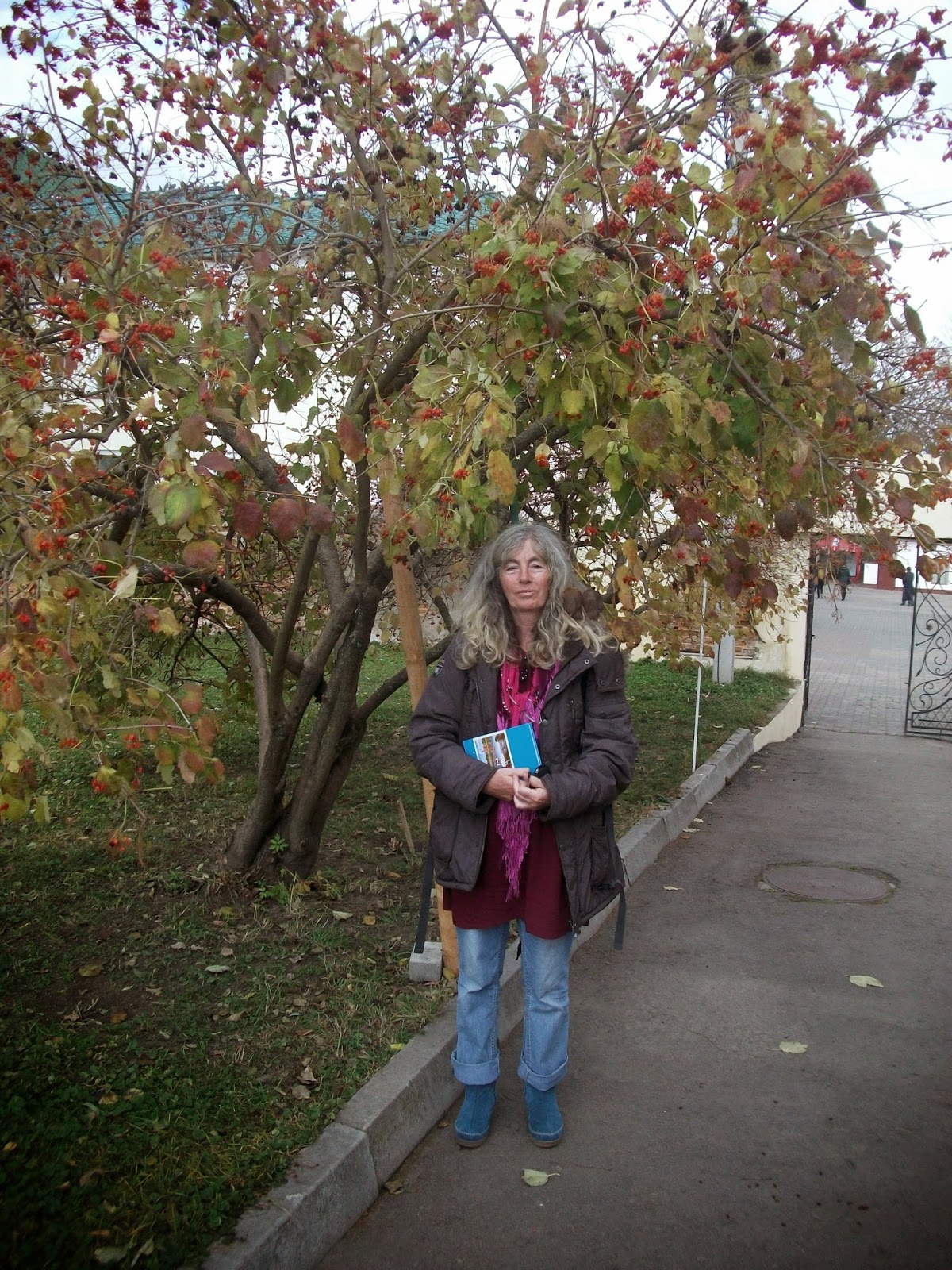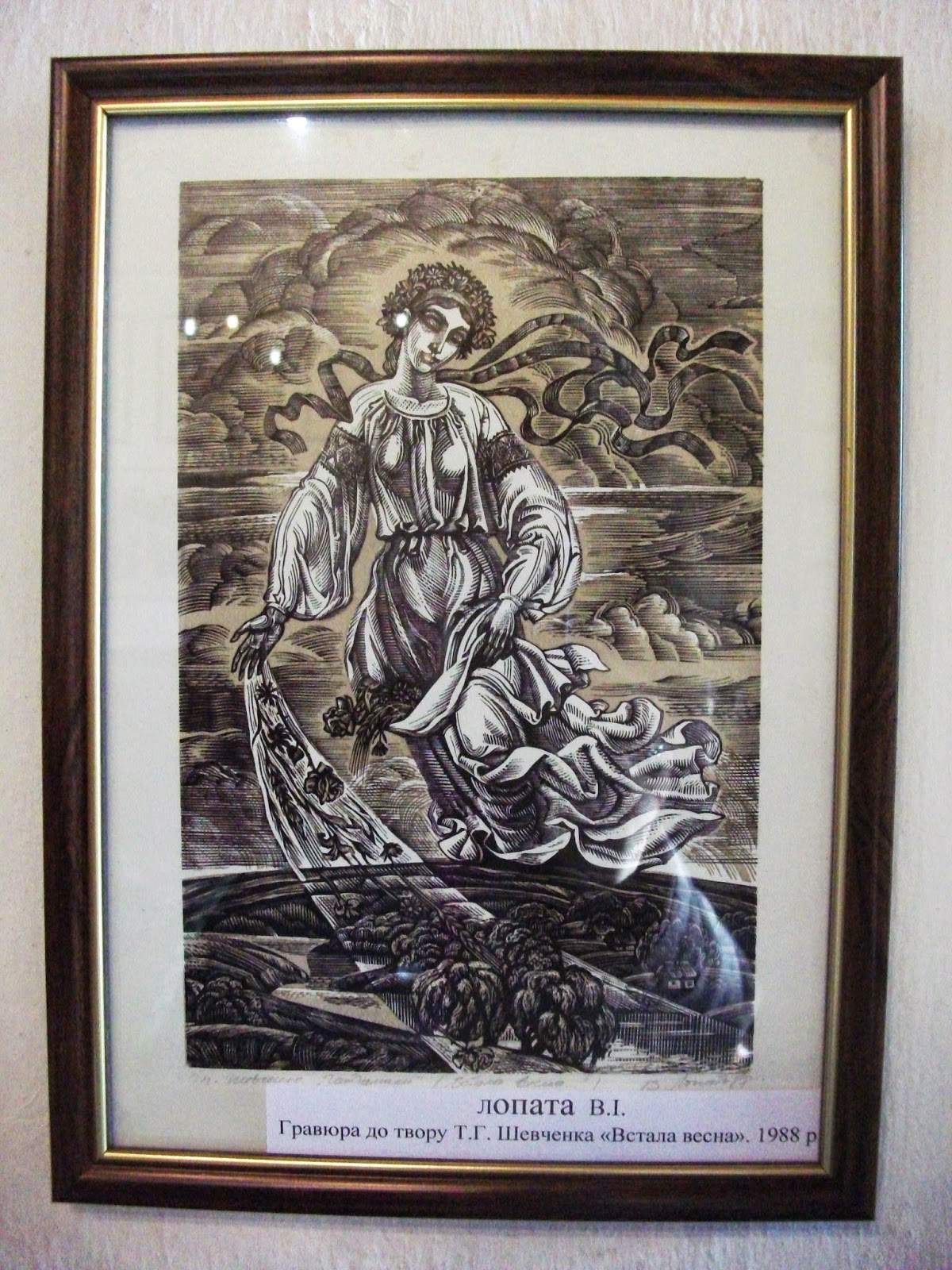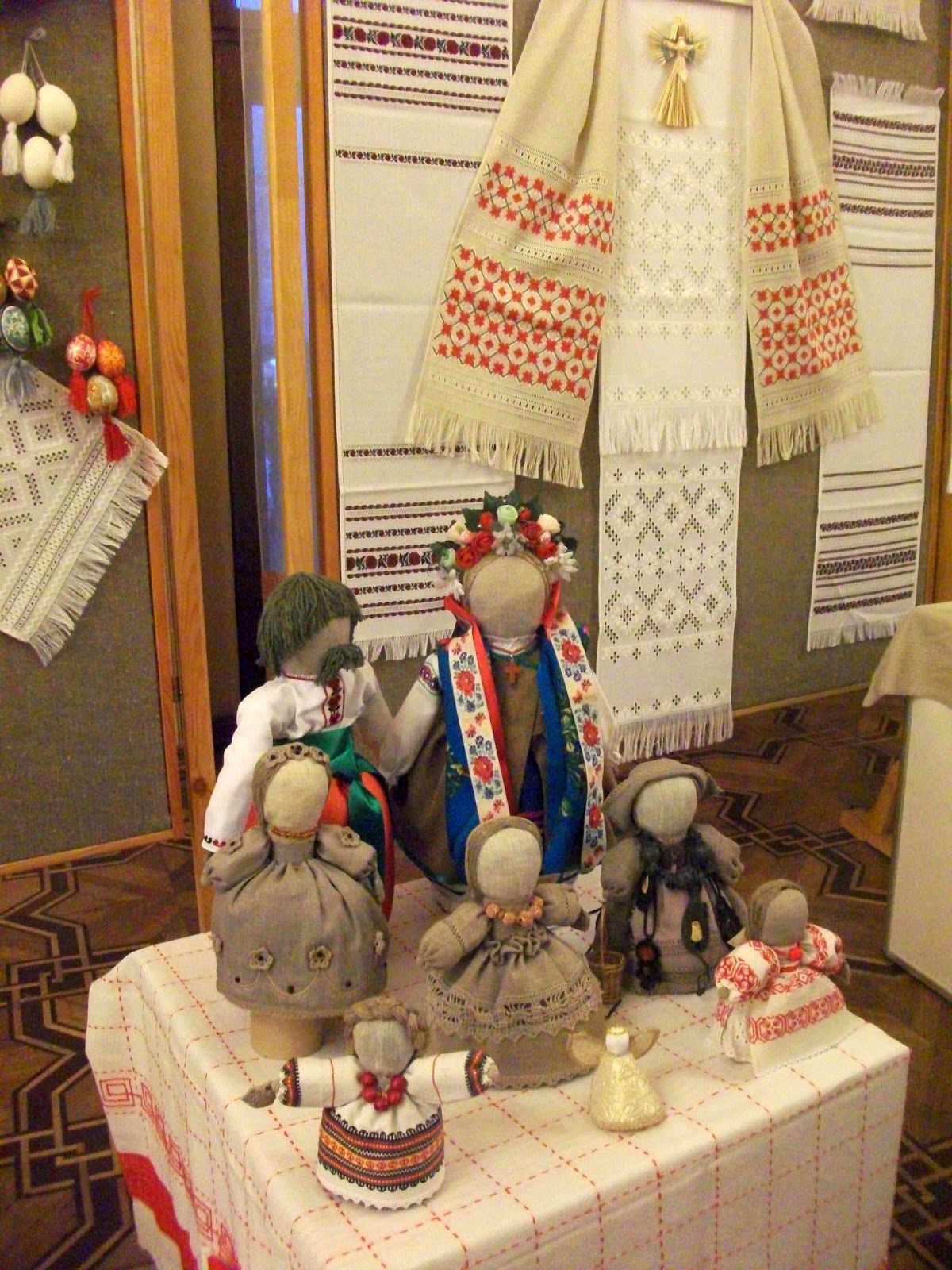"Poetess and community activist, Les
Mudrak, founder and chairman of the
organizing committee initiated and coordinated the International
event "Terra Poetica" in Ukraine. Which of the "yihalysya participants of 12
countries. The festival was held under the patronage of the Ministry
of Culture of Ukraine, Ministry of Foreign Affairs Humanitarian
Projects Fund of Culture of Ukraine, Kyiv NSPU organization,
Foundation "New Traditions" by Sergei Bondarchuk,
publishers' Summit Book, "numerous media partners, and
co-founder as chairman of the jury of the festival-contest, editor of
"Universe", Ph.D. Dmitry Drozdovsky."
This article gives the facts! (with help perhaps from google translate)
Many thanks to the authors -
Tanya Solovey, Lyudmila Korennay , Anna Grigorov,
Anna Dehtyarova
Day 3 Kyiv to Rivne
I saw the sun come up from the window of my room on the 7th floor of the Hotel Salute, overlooking Kyiv and the river Dnieper.
 |
| View overlooking Kyiv |
Just time for a quick cup of coffee before we all piled into the bus with Reisen written in big letters on the outside. Yaroslav moved through the group of people, encouraging, counting.. One stop mid-way to Rivne, for a coffee. Bright sunshine.
The flat plain rolled past. Fields of dried stalks of harvested maize. In one field, two horses pull a plough. In another, a lone black horse stands, against a yellow background of maize stalks. And a solitary golden dome lies outside a dome making manufacturers. Part-wooden houses with roofs between square and dome-shaped. A few black and white cows graze, not a herd, just a few, in the unfenced fields. So many silver birches and dark dark earth. The clouds create this vast sky over the flat plain. Then mist appears over the tiny silhouettes of trees on the horizon. And turns to rain.
Arrival in Rivne, and settle in to the Hotel Mir.
 |
| Prospekt Mir, Rivne |
I escape the press conference, go for a walk down Prospekt Mir, then turn left and find an open air market swarming with people, which leads onto a busy street. I turn left, then right, and lose my bearings. By some miracle I end up back at the hotel, just in time for the guided tour of Rivne, in a bus. A blue painted wooden church, charming older houses, cemeteries, memorials to those who died in the World Wars and the concentration camps, and a modern one to the defenders of the Maidan and those killed there.
 |
| Drama Theatre at Rivne |
The huge Drama Theatre at Rivne has soaring columns with Corinthian capitals outside, and marble columns inside. We're taken through the stage door, file through the dressing rooms, across the stage, sounds of rehearsing, of an orchestra playing, someone singing, the sounds float across the darkened auditorium.
Before the show, the readings, the music and the singing, we visit an art exhibition on an upper storey of the theatre, of embroidery, ceramics, folk art and traditional patterns, dolls without faces, their purposes to draw away any bad energy, to protect with their presence.
This protective magical energy throbs and hums throughout the performance.
From the ceiling of the Drama Theatre, light with changing colours falls on the twisting hanging mobiles, rectangles spin and turn, turn blue yellow deep red, arrangements of autumnal light, the breathing of a sky turned dense with stars.
It is true theatre, a creation designed to captivate, to wrap you in light and shade and swirling changing colours, to cast a spell of entrancement that you will not forget, never forget...
Day 4 From Rivne to Ostroh.
 |
| International connections of Ostroh Academy in 16th-17th centuries |
The University of Ostroh was the first in all of Eastern Europe, the Rector tells us. It was closed for a long time, but opened up again after the dissolution of the USSR. The Rector's name means bee-keeper he tells us and gives us all a small carton of honey. Mel. This is special honey he says, it should be savoured slowly, let it melt on the tongue. … the sun came out you see, in Ostroh, when we came out of the refectory. I remember the warmth of it, standing outside the building, beyond the university campus, with its gardens, trees (few leaves on them) benches underneath them, a statue of the first student, birds, peacefulness here, the restored church next to the restored university....
 |
| Medieval Ostroh Castle, with Academy on the right |
The national tree of Ukraine was pointed out to me. A slight and slender tree, with red berries. With some red leaves, some still green. Kalyna. Viburnum opulus. Sometimes called water elder. So sometimes then, I too will call it water elder, with its almost-maple leaves and its berries like cranberries, although they're not. This tree then, has an almost quality to it, a not-quite this or that, evading names and clear-cut definitions, it seeks shade, obscurity, not limelight, it likes archways and outbuildings, it tends towards the solitary, does not flourish in groups, it's drawn to edges and borders, it favours liminality, its red berries display its bright feelings, its deep, joyous emotions.
 |
| Kalyna & me |
I feel a kinship with this tree, maroon leaves vivid against a blue sky stirred with glitter, sprinkled with light, the way you'd scatter salt or seeds, and us, sowers and receptive sky or earth, who can say what we are, though we are passing through rivers of history – where places of learning were erected, a printing house, a monastery, a church, icons were removed, defaced and used as target practice, lost, hidden, recovered, restored.
| Icon on wood in the restored Church |
The academy too a ruin twenty years ago, no books or chairs, nothing at all, against all odds, has been restored. The cellars deep underneath the monastery where the remains of the Capuchin monks were kept, robbed and ruined by the Russians, have now been cleaned and renovated, and house an art gallery.
 |
| Monastery crypt |
The honey, savoured and ringing like soft bells through the sunlight settling on the tree, kalyna, as if it meant to stay there forever. The path to the castle of Ostroh,
 |
| View from castle |
the home in the Middle Ages of the Prince Ostrovsky, who gave 'towers of money' to fund the University where subjects studied were medicine, theology, philosophy, Greek, Latin and the old Slavonic language – and to this whole city, where pottery, smithcraft, and printing flourished. The castle museum,
 |
| Castle Museum |
and the etching of the angel, forever sowing light on this land, eternity's light fingers touch us and we do not know it then, not really, just this sensation of a different light, that something has changed, has arrived in our hands, and we cannot pinpoint it precisely, just sense a wondering, that we haven't always lived in light like this, and a faith, always renewed, that now will never leave again, it will remain with us forever.
 |
| Angelic Sower |
In late afternoon, colourful with leaves and berries, with the honey gatherers, the settling sweetness, we drive back to Rivne, riding over road stitches, patches and darns, and there's the bunched lace- work of mistletoe in trees and a scent of burning leaves that lingers...


Comments
Rubyxx
Mxx